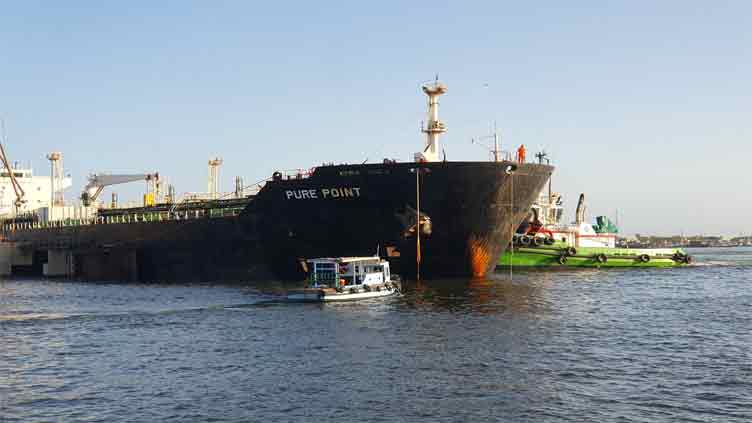National Refinery in Pakistan to boost very low-sulphur fuel oil output for ships

Business
Monthly production to increase from 2,000 to at least 10,000 metric tons over next six months
KARACHI (Reuters/Web Desk) – Pakistan’ National Refinery Limited (NRL) has started producing very low sulphur fuel oil (VLSFO) for ships and is planning to expand its monthly output by at least five-fold in six months, the company said late Tuesday.
The company is producing about 2,000 metric tons of VLSFO per month, with the monthly volume likely to increase to 10,000 tons to 12,000 tons over the next six months, NRL told Reuters in an email.
NRL announced the production of VLSFO in a notice to the Pakistan Stock Exchange earlier this week, stating that this comes after a "necessary change in crude mix and adjustments in production process".
In Pakistan, VLSFO is typically produced via blending of the high-sulphur fuel oil (HSFO) with other fuels, industry sources said.
NRL said it will supply VLSFO to ships calling at Pakistan.
"HSFO market is shrinking in Pakistan and the refinery faces problems in selling it locally, whereas bunker fuel market segment is starved," the company said.
WHAT IS VERY LOW SULPHUR FUEL?
Fuel oil with maximum sulphur of 0.1 per cent is called very low sulphur fuel oil (ULSFO) which is followed by VLSFO less than 0.5pc, low sulphur fuel oil (LSFO) less than 1pc and HSFO less than 3.5pc.
VLSFO can be produced by blending ULSFO with LSFO or marine gas oil (MGO) with LSFO which is a product of residual fuel oil after hydrotreating or hydroprocessing.
THE PURPOSE AND USE
IMO 2020, also known as Sulphur 2020 or MARPOL 2020, is a regulation officially confirmed by the International Maritime Organization (IMO) in October 2016 with the aim of reducing harmful sulphur oxides emissions by the maritime industry.
It mandates shipping vessels outside the designated emission control areas to use fuel containing less than 0.5pc of sulphur, an 86pc reduction from the current rule of 3.5pc, from January 1, 2020 onwards.
To comply, ships have various options, including installing scrubbers in their current shipping fleet to remove sulphur oxides emissions due to the use of HSFO, also known as bunker fuel, or using alternatives like VLSFO), MGO or liquefied natural gas (LNG).

